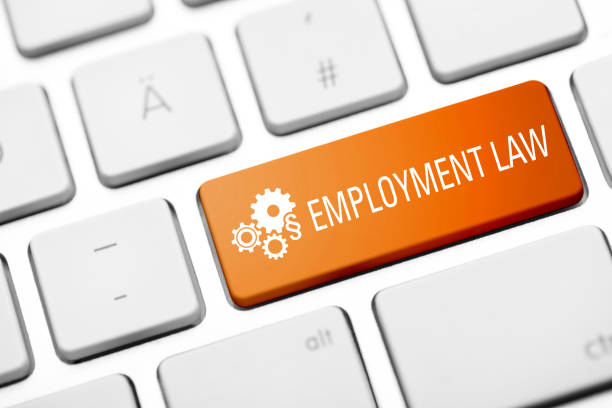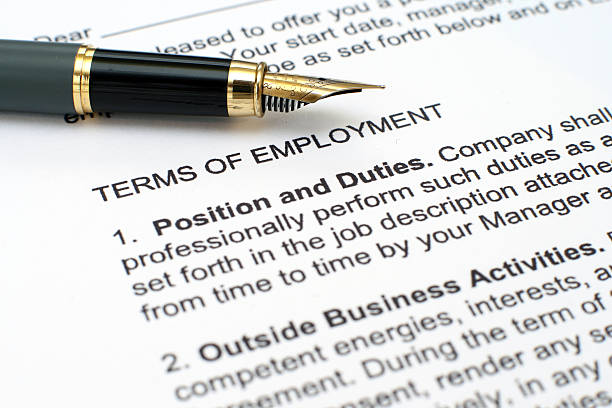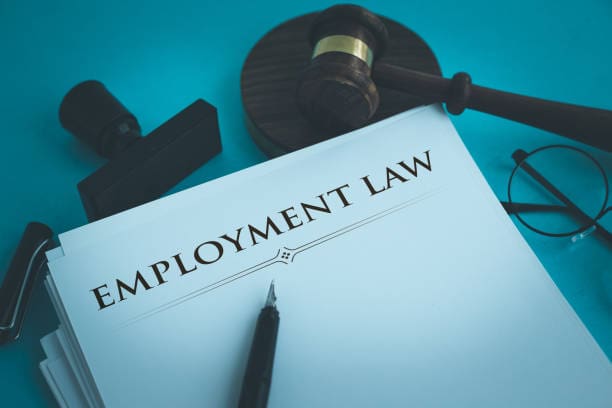As the name suggests, Australia employment law is a collections of rules and regulations that mediate workplace relations between employers and employees. Lawyers who specialise in this help with various important aspects. They act for employees whose employers refuse to comply with the national workplace relations system.
Moreover, this system outlines minimum requirements for working conditions (such as national minimum wage), any claim that can protect employees, and their employment rights. There are many federal anti discrimination laws that are important in employment law.
Lawyers can help with:
- Reviewing employment contracts
- Managing disputes in all sectors including acting for private sector employees and casual employees
- Assessing employment relationship and filing claims in case of unfair treatment
- Reviewing enterprise agreement
Australia Employment Law Legislation
In Australian employment law, the Fair Work Act (2009) is the most important legislation under employment law. There are other sources of employment law such as industrial instruments, common law and federal, state and territorial regulations. Lawyers provides important advice on many different issues. There are certain other important and relevant legislation such as:
- Corporation Act 2001: The main legislation regulating companies under employment law (including guide for any small business) in Australia.
- Independent Contractors Act 2006: This legislation protects the rights of independent contractors.
- Competition and Consumer Act 2010: This covers various areas of the market including relationships between suppliers, retailers, consumers and wholesalers. It promotes fair trading and competition.
When discussing employment law, the main emphasis is placed on issues that workers face in the office. They have rights that they should be aware of. Often many parties file a class action against their company if they have a claim against it.
Read more about filing a class action claim here. In this article on employment law, we’ll go over some important points in relation to wokers’ rights and importance of lawyers and legal services.

Your Rights At Work
This section discussion workers’ rights. The Fair Work Act (2009) consists of the National Employment Standards (NES). The NES includes 11 minimum entitlements that workers must receive. It covers the following:
- Maximum weekly hours
- Offers and requests to convert from casual to permanent employment
- Parental leave and other entitlements
- Requests for flexible working arrangements
- Annual leave in employment
- Community service leave
- Long service leave
- Personal or carer/s leave, compassionate leave, and unpaid family and domestic violence leave
- Notice of termination and redundancy pay
- Public holidays
- Casual Employment Information Statement
Notably, the NES provides a safety net for workers, and these different laws apply whether they work casual, part-time or full-time. In fact, lawyers can assist a worker to make a claim against a company breaching any of the standards listed under the NES. The company can be penalised.
It is also important to note that if your employment contract does not specify any of these entitlements, you still have certain rights. Moreover, in case the registered agreement or award provides an entitlement, but not the full extent of it, your boss still has obligations and needs to follow the standards listed out under NES.
For example, let’s suppose that an agreement states that a full-time worker has a certain number of annual leaves that he/she can claim. However, if the actual number of annual leaves he/she can get is more according to the NES, the term of that contract will have no effect. The full-time worker will be able to receive more annual leaves (as stated in the NES). It is safer to engage lawyers in case of any concerns.
Issues Under Australia Employment Law
The following section outlines common issues that people face. When you are reading up about employment law, this is an important topic as people seek guidance from lawyers for dealing with such issues. Given below are some of the common issues that people face:
Harassment or Workplace bullying
The workplace can become a highly toxic environments if co-workers harass each other. People can be subjected to ill-treatment because of their age, race, gender, social or economic background, religion, national origins and physical ability, among other reasons.
Moreover, sexual harassment is also a very serious problem. Many people are often made to do sexual favours in return for favourable conditions at the workplace. All such issues create a hostile working environment and can also impact people’s mental health. Lawyers can zealously fight against such issues on behalf of their clients.
Discrimination
It is closely related to the issue of harassment in employment. This is unfair treatment against people with certain characteristics such as age, gender or racial discrimination. This can greatly affect their mental health.
Minimum wage issues and wage theft
An employer may not respect the minimum age conditions . Often, this results in workers being severely underpaid. It is the employer’s responsibility to be aware of rules and regulations that apply to their state or country.
They have an obligation to abide by these rules when it comes to payment of wages. Moreover, wage theft or the issue of unpaid wages is also a common issue in Australia. Wage theft occurs when an employers fails to provide remuneration to workers for their services.
Wrongful termination Or Unfair dismissal
When a manager fires a worker due to wrong reasons it is termed as wrongful termination. For instance, if a worker is terminated because of their race, religion or sexual orientation it is wrongful termination. Moreover, sometimes workers may take leave to participate in military service, or to serve in the jury or to vote. An employer cannot fire a worker due to these reasons.
There are many other issues like the ones mentioned above that have negative impacts on someone’s health. The legislation does protect workers against these issues. However, many employers may take undue advantage of their workers and treat them poorly. It is important to realise your rights as an employee. Always seek advice and legal services from lawyers if you are facing trouble in the workplace.

What Are 3 rights of A Manager?
According to law, they have the right to set up procedures and policies in the workplace that everyone should abide by. They can define suitability standards. Moreover, although it may seem like a “breach of privacy”, employers can monitor workers’ use of office equipment. Many a times, this topic is sidelined. However, if you need legal advice as a manager, our lawyers at JB Solicitors is only one call away.
Seek Legal Advice From Employment Lawyers
Lawyers are well-versed with legislation, and they will know exactly which rules and regulations apply for a particular matter.
If you are dealing with any issue, you must seek legal advice and legal services from an expert team of experienced lawyers. Often, people get panicky when it comes to employment law issues. This is understandable as you may risk losing your job. However, for most cases like discrimination, underpayment of wages or harassment, it is important to voice your concerns to the other party and speak to a lawyer to explain your circumstances.
Moreover, many people remain unaware about the law, their rights and entitlements as an employee. Nobody should feel the need to comply with absurd and unreasonable conditions of their employer. Speak with lawyers for more information.
Contact JB Solicitors
If you require information about Australia employment law on employment rights related to workplace relations, sexual harassment and need any other professional advice for work related matters, do not hesitate to contact a lawyer at JB Solicitors.
Our lawyers can gather information and details about your employment and legal matter, and provide legal advice that is tailored to your need in your preferred language. We can determine the best course of action. We stay updated about any information published by Australian government on employment law and industrial relations.
Contact us for more information on employment law or to speak with a lawyer.
